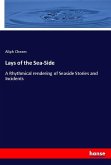In the vast depths of the world's oceans lie countless treasures and untold stories waiting to be discovered. Underwater archaeology is the field that brings these hidden secrets to light, allowing us to unravel history and gain a deeper understanding of our past. This subchapter explores the importance of underwater archaeology, particularly for students interested in the field of archaeology. Underwater archaeology is a unique discipline that combines elements of archaeology, history, and marine science. It involves the study and excavation of submerged cultural heritage sites, such as shipwrecks, ancient ports, and submerged cities. These underwater sites provide invaluable insights into the lives and cultures of our ancestors, shedding light on historical events and technological advancements. One of the key reasons underwater archaeology is important is its ability to preserve and protect our cultural heritage. Many ancient artifacts and structures are better preserved underwater than on land due to the absence of oxygen and other decay-inducing factors. By studying and documenting these underwater sites, archaeologists can ensure their long-term preservation and prevent the loss of valuable historical information. Furthermore, underwater archaeology allows us to fill in gaps in our knowledge of history. The ocean has been a significant part of human civilization for centuries, serving as a means of transportation, trade, and conflict. By exploring underwater sites, archaeologists can uncover missing pieces of the historical puzzle, providing a more comprehensive understanding of past societies, their interactions, and the development of maritime technology. For students interested in archaeology, underwater archaeology offers unique opportunities for hands-on learning and exciting discoveries. It combines elements of history, science, and adventure, making it an engaging and dynamic field of study. Students can participate in fieldwork, underwater excavations, and the analysis of artifacts, gaining practical skills and a deeper appreciation for the interdisciplinary nature of archaeology. Moreover, the study of underwater archaeology fosters a sense of stewardship for our marine environment. As students explore and learn about underwater sites, they develop a greater understanding of the importance of protecting our oceans and marine ecosystems. This knowledge can inspire future generations to become advocates for conservation and sustainable practices.
Hinweis: Dieser Artikel kann nur an eine deutsche Lieferadresse ausgeliefert werden.
Hinweis: Dieser Artikel kann nur an eine deutsche Lieferadresse ausgeliefert werden.








